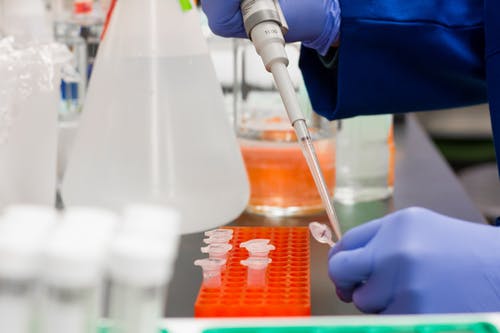Researchers have developed a chewing gum that appears to limit the spread of the coronavirus.
A new study published in the journal Molecular Therapy demonstrates that a new chewing gum could reduce the spread of the coronavirus by reducing the presence of the virus almost entirely in confirmed cases. This gum evidently limits the particles in saliva and helps to slow transmission, the team notes. Essentially, the gum contains a protein that traps particles and limits the amount of saliva that is transferred when individuals are conversing, breathing, or coughing near others.
Researchers at the University of Pennsylvania tested their newly developed chewing gum in test tubes using saliva and by swabbing samples from hospitalized patients with confirmed cases of the virus. In test tube experiments as well as the swab samples, “virus particles attached themselves to the ACE2 receptors in the chewing gum” much like they would to these receptors found on skin proteins that appear to allow for the development of an infection.
“Chewing gum with virus-trapping proteins offers a general affordable strategy to protect patients from most oral virus re-infections through debulking or minimizing transmission to others,” the study authors wrote, adding, “The gum contains copies of the ACE2 protein on cell surfaces, which is the spike protein that the coronavirus uses to break into cells and infect them. During the test-tube experiments, the virus particles attached to the ACE2 receptors in the gum. The viral load in the samples fell by more than 95%.”

The gum that was used in the experiment tastes like normal gum would and can be stored for up to five years. Thus, it has long shelf live stability.
“Using gum to reduce viral load in saliva would add to global vaccination efforts and could be useful in countries where vaccines aren’t widely available or affordable,” the researchers said. “The gum is made from clinical-grade plant material and was developed to meet FDA requirements.”
The authors also indicated, “While this study focuses on debulking SARS-CoV-2, the concept of trapping viral particles in the oral cavity using viral surface proteins in chewing gum to minimize re-infection or transmission could be applied to most other oral viruses including influenza, SARS, HPV, HSV, Epstein-Barr, Zika, and herpesvirus that complete their life cycle in the oral epithelium.” Thus, the use of the gum could prove helpful in reducing the transmission of other viruses.
The product is still in an experimental phase, making it unable to be sold just yet. It has to continue to be tested to verify results.
Meanwhile, researchers are also testing the effectiveness of boosters to reduce transmission of the virus. They have speculated that protection against COVID-19 from a vaccine (the Moderna or Pfizer shots) “may last longer after the booster dose than after the original two-shot regimen.”
“Because these antibody levels are so robust, the booster could potentially give us protection for a longer duration than what we saw for two doses of the vaccine,” study coauthor Alexis Demonbreun of Northwestern University Feinberg School of Medicine in Chicago, concluded.
With booster shots now available and other options for limiting transmission being tested, researchers are hopeful that the spread of the coronavirus can be contained.
Sources:
Experimental Chewing Gum Could Reduce Coronavirus Spread
Experimental chewing gum may reduce virus spread; Booster shot protection may be longer lasting


Join the conversation!